Christiano Coletto Christakou
Curriculum Learning for Cumulative Return Maximization
Jun 13, 2019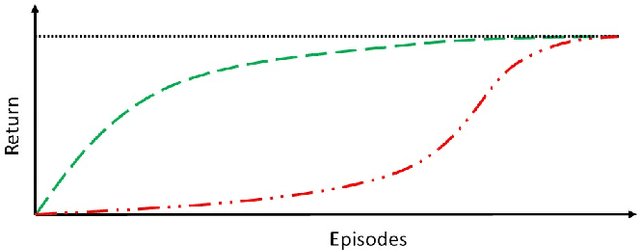
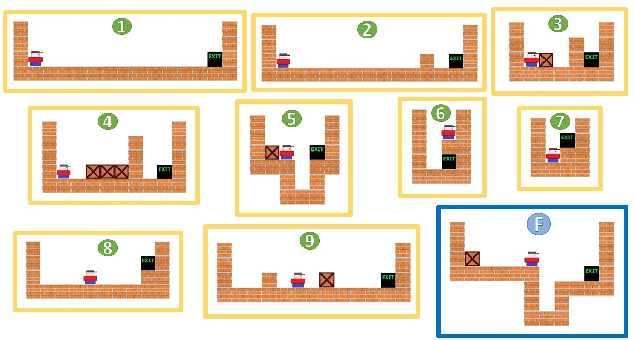
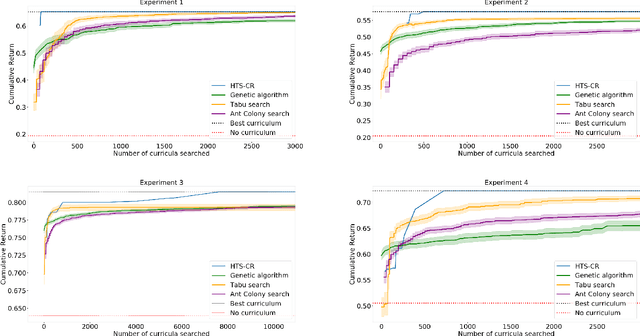
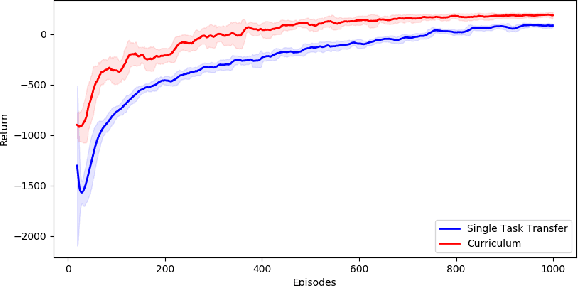
Abstract:Curriculum learning has been successfully used in reinforcement learning to accelerate the learning process, through knowledge transfer between tasks of increasing complexity. Critical tasks, in which suboptimal exploratory actions must be minimized, can benefit from curriculum learning, and its ability to shape exploration through transfer. We propose a task sequencing algorithm maximizing the cumulative return, that is, the return obtained by the agent across all the learning episodes. By maximizing the cumulative return, the agent not only aims at achieving high rewards as fast as possible, but also at doing so while limiting suboptimal actions. We experimentally compare our task sequencing algorithm to several popular metaheuristic algorithms for combinatorial optimization, and show that it achieves significantly better performance on the problem of cumulative return maximization. Furthermore, we validate our algorithm on a critical task, optimizing a home controller for a micro energy grid.
An Optimization Framework for Task Sequencing in Curriculum Learning
Mar 11, 2019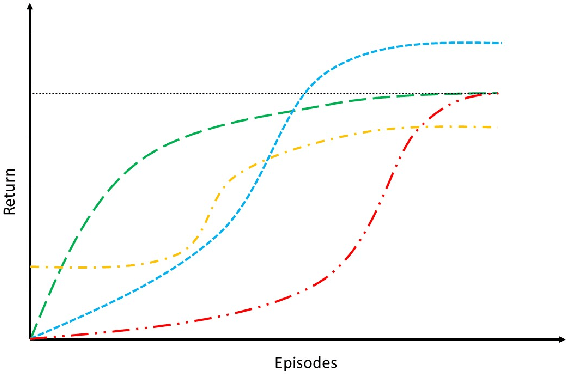
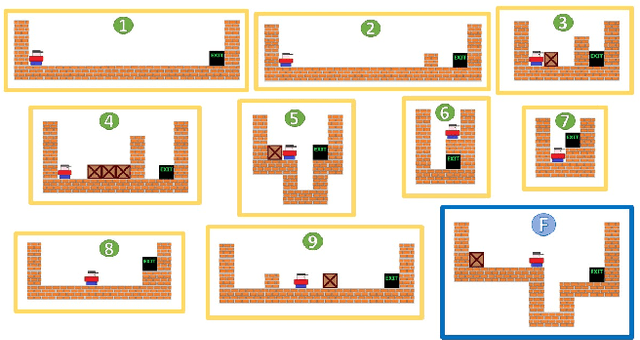


Abstract:Curriculum learning in reinforcement learning is used to shape exploration by presenting the agent with increasingly complex tasks. The idea of curriculum learning has been largely applied in both animal training and pedagogy. In reinforcement learning, all previous task sequencing methods have shaped exploration with the objective of reducing the time to reach a given performance level. We propose novel uses of curriculum learning, which arise from choosing different objective functions. Furthermore, we define a general optimization framework for task sequencing and evaluate the performance of popular metaheuristic search methods on several tasks. We show that curriculum learning can be successfully used to: improve the initial performance, take fewer suboptimal actions during exploration, and discover better policies.
 Add to Chrome
Add to Chrome Add to Firefox
Add to Firefox Add to Edge
Add to Edge